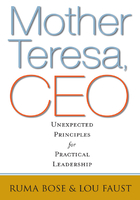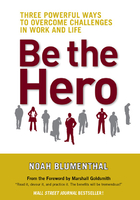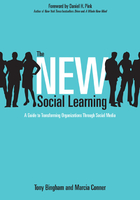Chapter II Open Space Discovered
Open Space Technology came into being by way of a joke made out of frustration. The frustration was mine, when at the conclusion of a year-long effort to organize an international symposium for 250 souls, everybody agreed the best part had been the coffee breaks. The rest was interesting, possibly useful, but definitely in second place to the juicy moments of sharing in the informality of the coffee breaks. There had to be a better way.
The joke was about technology. Ever since that word became attached to the end of Open Space, strange looks have followed. How on earth could anything like the Goa experience be called a technology?
From the viewpoint of strict definition and narrow interpretation, the word technology is appropriate. There is a techne (technique) involved in order to produce an intended result. But that is stretching to say the least, and in fact the enterprise was never conceived as a technology. It was so designated in an odd moment, and the word just stuck. All of which constitutes a funny story on the way to the future… with a point.
Metaphysical Management and Open Space Technology
At the conclusion of our gathering in Goa, I found myself back in Bombay with my Indian host, V. S. Mahesh. Mahesh was the vice president for human resources with the Taj Hotel Group, and we were staying in his palatial establishment, the Taj Bombay.
Mahesh had seen fit to organize a press conference for me with the business writers from the Bombay press, nine gentlemen and one lady. Mahesh did the honors as host and introduced me to the assembled group. In the Indian way, the introduction was quite formal, but its content left me practically speechless.
It seems that a British colleague of mine had just written a book in which four approaches to organizational theory and practice were described, and the last one was characterized as “metaphysical management.” It was my privilege to be singled out as the exemplar of this esoteric endeavor. Considering the nature of my work, and what I had been writing about, this characterization was not wholly in error, but definitely not one I would have chosen for myself.
Back to the press conference. My friend Mahesh (I use that term broadly) welcomed the fourth estate and introduced the conference with the words, “This is Harrison Owen, the founder and practitioner of metaphysical management and Open Space Technology. Harrison, would you please explain this and describe what you actually do?”
Eyebrows rose with the mention of metaphysical management, and Mahesh, having pulled off one wonderful oxymoron, could not resist a second. Out came Open Space Technology. Had Mahesh not been a friend, I should certainly have done him bodily harm, and to this day I do not know how seriously he intended his words. But the words had been spoken and I was stuck with them, particularly after the articles came out on the following day, with my name firmly attached to metaphysical management and Open Space Technology.
So that is the story of how Open Space was designated a technology: a fair representation, but not to be taken too seriously. And here's the point. Open Space, from the beginning, required a certain playful appreciation. Taken too seriously, you could be in deep trouble. But as we had discovered in Goa, Open Space works, and for that reason a degree of respect is also in order. Playful respect was, and remains, an essential condition for effective entry into Open Space.
In the beginning, my central, and indeed only, concern was to find a better way for human meeting, which could be at once effective, economic in terms of energy expended, and fun. Perhaps it is the hedonist in me, but I believe that gatherings designed to achieve useful results can only be fully effective when the participants are having fun. The issues on the table, and the implications of the outcomes, may all be deadly serious, but creative interchange, to say nothing of innovative results, seems to disappear quickly when a dark cloud of solemnity hangs over everything.
Inspiration for Open Space
Inspiration for Open Space did not come from an extensive study of meeting management, or organizational dynamics, or the so-called leaderless groups experimented with in the early sixties by the folks at National Training Labs and elsewhere. The point of departure for Open Space was separated from all of the above by thousands of miles and centuries of human experience. It began in Balamah.
Balamah is a very small, unexceptional village in the bush of West Africa. All the residents are Kpelle and they had been in the area for hundreds of years. In more recent time they, along with neighboring tribes, became part of Liberia. Life in Balamah was largely unaffected by this modern national designation, and it was my privilege to spend some extended periods of time in their midst as a guest of the chief.
One of the high experiences for all residents and visitors to the village was the rite of passage for the boys and a similar celebration for the girls. I was fortunate to participate, as much as a Westerner can participate, in both. These celebrations occurred on a seven-year cycle and were replete with complex ritual, pageantry, dance, and just plain fun. Profoundly moving, the renewal of the village was celebrated as its young people were welcomed to adulthood and acknowledged as the first fruits of the future.
My natural curiosity, to say nothing of a perceived need to be at the right place at the right time, led me to ask what the starting time might be. Blamah, the chief, would just smile and say, “When it's time.”
And Blamah was right. The events always started when it was time. But how, I wondered, did anybody know? There were few calendars and such clocks as there were rarely ticked. Even worse, there was no planning committee, and yet the events came off right on schedule, without a hitch. Every time.
Upon reflection, I noticed that several nights prior to the start of either celebration, the drummers in the village did a lot of practicing in the early morning hours. It all seemed rather disorganized, as one drummer announced a short rhythmic phrase that would eventually be answered by a colleague from another quarter of the village. The answer, however, was always some form of elaboration. The rhythmic pattern would be inverted, played backwards, or sometimes started in the middle and played both ways.
Over time, it was as if the village and its drummers were finding their beat, and as the beat settled to some consistent form, the dancers began to appear. First they danced in random groups, or even solo, but gradually the dancers became a dance that circled the perimeter of the village, eventually swirling to the central courtyard, an open space in the heart of the village. As the dancers converged, the rhythm intensified and the festivities began in earnest.
All during the day, dancers and drummers conversed, dancer followed dancer, and sometimes everybody danced. The power of the moment was palpable, and in the dance one could feel the new, emergent spirit of the village made manifest, not only in the presence of the young initiates but most strongly in the total flow of the occasion.
The rhythm waned and the dancers tired. It was almost as if the village collective had been drawing in a deep breath, filling the central open space with life, and then letting that breath out with a pleasant fatigue that bordered on exhaustion. Inspiration, followed by expiration. Life was drawn to the core and then released back to the periphery, as dancers and drummers retired for the night in preparation for another day of celebration.
Simple, beautiful, elegant, organic—Blamah was right; everything began when it was time, and time itself was determined by the rhythmic breathing in and out of the whole village.
I Believe I've Got It!
In the moment, I thought I had the answer to my quest for some effective alternative to gatherings characterized by endless speakers and terminal fanny fatigue, in which the sole bright spots were the coffee breaks. Invite people to join a circle and allow (encourage) that circle to breathe in and out, inspire and expire. Then the spirited interchange, juicy time, just plain fun of the coffee break might recreate itself. Add an equally simple mechanism to identify the substantive issues to be considered, and enable the process of organization in time and space. And there it is: fun and substance!
The bulletin board suggested itself as the issue raiser, and the marketplace was an obvious choice for organizer. Both the bulletin board and the marketplace are known and used the world over. No explanation is needed and, generally speaking, the mechanisms are so fundamental they can't break.
And there you have it. Four elements create Open Space: circle, breath, bulletin board, and marketplace. The circle creates the conditions of meeting. With that particular geometry, people will get together and communicate, person to person, face to face.
Breath is rather an odd way of talking about what is going on here, but taken metaphorically it points to the organic quality of the Open Space gathering. This is not a mechanical process with gears and shafts, hard surfaces, and wires. Open Space is about life and creating the space in which life can expand, or if you will, breathe.
The bulletin board is one of those wonderful universal phenomena that link human beings. Whether you find yourself in Old Delhi, New York, or plugged into the biggest global bulletin board going, otherwise known as the Internet, the reality is familiar and the rules well known. It's simple: if you have something of concern to you, announce it to the world on the bulletin board.
The marketplace is no less universal or natural. Obviously, many people have written massively about what it is and how it works. Despite their efforts, we all know that we don't know. But isn't it funny? The marketplace just works anyhow. If not here, then there, if not today, then tomorrow, the marketplace, as the environment of human interchange, magically appears whenever folks have something of importance to trade.
Some people talk idly, or seriously, about “controlling the market.” We all know, however, that the market is ultimately uncontrollable, and we are reminded of this occasionally when Wall Street suffers meltdown or some other catastrophe. This knowledge has recently been formalized into such wonderful concepts as chaos theory and self-organizing systems, but as every trader of goods or ideas has always known, the marketplace is a living creature of which we were all a part. Subject to its own rules, beholden to no single person, the marketplace is neither more nor less than a potent manifestation of the collective consciousness of Homo sapiens. When invoked in Open Space, the marketplace works its magic by bringing buyers and sellers, users and providers, the knowledgeable and the needful together in an organic tapestry of shared meaning.
With effort, we could have converted our discovery into a hugely complicated and detailed process, replete with manuals and procedural steps. But why bother? It seems that at some innate and deep level, we all know what is going on and how to get along with what's happening. To be sure, some do better than others, but amazingly most people seem to make it most of the time.
Engines of Open Space: Passion and Responsibility
There are two engines powering Open Space: passion and responsibility. For some people the notion of passion is too wild and uncontrollable; they would prefer something like interests or concerns. For myself, I like passion. Anything less just doesn't bring the juices up to a rolling boil, which is absolutely essential if Open Space is going to be other than boring. Open Space begins, and in some ways ends, with the invitation to follow that which has heart and meaning for you. The presumption is that commitment, performance, and excellence only emerge when the heart is engaged meaningfully, and that is called passion.
But passion alone is not sufficient. There must also be responsibility, which will insure that passionate concerns will lead to action. Without responsibility, passion is a flash in the pan, smoke and mirrors, nice ideas, vaporware.
Responsibility alone is insufficient as well. Responsibility without passion is boring, dull, stultifying. It's a real drag. While something useful may get done in the name of duty, duty itself must become the passion or the level of accomplishment will be low.
When passion and responsibility are linked, an opening is created for innovation and something gets done. In Open Space, this translates into excitement and results, or put another way—having fun doing something useful.
Four Principles and One Law
I would love to take credit for enormous foresight and creative powers in the enunciation of the four principles and the one law (the Law of Two Feet). People say that the principles and the law not only make Open Space rich and possible, but they also can be useful guides for daily living. Truth be told, however, all of the above presented themselves as a blinding flash of the obvious. It was what people seemed to be doing anyhow, and the articulation of the principles and the law was merely to acknowledge the experienced reality.
It didn't happen all at once, and I am pretty sure that the first several Open Space events, which were conducted for small experimental groups, never had the benefit of either law or principles formally stated. But by the time we arrived in Goa, five years after the first Open Space event in Monterey, California, in 1985, both elements were very much a part of what we did.
In many ways, the articulation of the principles and the law was a benchmark in the emerging realization of what Open Space could be all about. We noticed, time after time, that the most unlikely people regularly accomplished incredible results, in terms of actions taken or insights achieved. There was no other way to explain what took place except to say: Whoever comes is the right people.
The second principle, Whatever happens is the only thing that could have, might be construed as pure fatalism, a condemnation to a predetermined universe. The principle, however, is not that complicated, although it may be a lot deeper. At the simplest level, the principle acknowledges the obvious—what is, is the only thing present Now. Theoretical possibilities, probabilities, or “shoulds” just don't count. But the truly operative word is Now, and the principle opens the way to a deeper perception of Now.
There is no force or prescription here. Nobody has to do anything. But we all live Now, and we might as well get used to it. Living in the past is limiting at best, and living in the future is pure make-believe. Now is all there is. It may be a fleeting instant on the way from the past to the future. Alternatively, Now may be the superbly rich environment, extending infinitely in all dimensions, in which our full potential may be realized. At some level, the choice is ours. The experience of Open Space, almost inevitably, is that Now is stretched past all expectation.
The third principle, Whenever it starts is the right time, like the previous ones, is a simple recognition of a surprising fact. In Open Space, clock time doesn't really seem to make all that much difference. The examples are legion, but in one major Open Space event with five hundred people from a cellular phone company, the public address (PA) system was one and one-half hours late in arriving. Needless to say, doing anything useful with that number of people without a PA system was simply out of the question, even though we had only a single day in which to achieve a company-saving turn around. Everybody was quite clear: blowing this opportunity meant kissing the company good-by.
In short, the stakes were excruciatingly high and the PA system was aggravatingly late. Eventually, however, the system arrived and everything worked out just perfectly. With no special effort or outside intervention, scheduled groups rescheduled all by themselves. One might consider this result a rare example of providential intervention, but in fact it is the common experience in Open Space.
We have come to recognize what we should have known all along, clocks set arbitrary limits, and only that. To be sure, our chronometers enable us to fashion the time maps of human experience, the time lines describing past occurrences, and the time projections for coming attractions. But, somehow, things never happened the way we describe them, nor work out the way we expect. Our time maps are like all maps, never to be confused with the territory.
A simple children's joke makes the point. Question: How long does it take to fall over a cliff? Answer: All the rest of your life. A little macabre perhaps, but clearly in critical situations time can be experienced in many ways. On the one hand, the journey envisioned in the joke is a short one, measured in seconds prior to hitting the bottom. Look again and it seems to go on forever as the whole of one's life flashes by, if we are to believe those who have taken the trip and survived to tell the tale.
Near-death experiences apparently have the capacity to wipe out clocks, but they are not the only such phenomena. Lovers recognize that a kiss can last for eternity, and all of us know the timelessness of a clear starry night. It would seem that in most, if not all, significant life experiences, time is an incidental. And what creates the significance? I can only answer: the presence of Spirit, which might also be described as inspired performance or spirited interchange.
Over the several years we have been playing in Open Space, it has become increasingly apparent that the third principle points to the deeper reality. It is all about Spirit as manifest in spirited interchange and inspired performance, which are the hallmarks of Open Space. People quite regularly do what they know to be impossible, and having accomplished that, the rest, whatever that might be, seems much less demanding. Generally speaking, we might assume that such miraculous performance could only be accomplished with tight controls and very careful scheduling. The reality is very often the exact opposite. Performance rises to the extent that people are prepared to dispense with the illusion of control and break the tyranny of the clock.
Visitors to Open Space, whether first timers or old hands, remark on the palpable sense of flow in the environment. High energy, but not frantic, and things really getting done. Clocks, although present, play a relatively minor role in the orchestration of the group. Very quickly there evolves an interior sense of flow that provides the calibration by which the group regulates itself. Clocks are only a convenience (if that), and never the final arbiter.
We have learned, I think, that in the world of Spirit, the world of inspiration and creativity, Now expands effortlessly and without limit. In such a world, time virtually ceases to exist, or perhaps it would be more accurate to say that it starts again with every interjection of Spirit. When there is a new inspiration, a new moment of creativity, a new time begins to be calculated. We speak of “before that moment… “ and measure our experience “since the breakthrough… “ As we say, “Whenever it starts is the right time.”
The final principle, When it's over, it's over, is once again a blinding flash of the obvious, yet it is a point of obviousness we often overlook. Everything in our experience, and certainly everything in Open Space, has a beginning, a middle, and an end. Ideally, we will celebrate the beginning and enjoy the middle, but the end is not without its difficulty. It is very hard to let go and move on. At a trivial level, the moving on may be about shifting to another group when the discussion runs dry in the one we joined originally. But somehow this is hard. Politeness, inertia, tradition, all conspire to keep us where we sit.
At a deeper level, the ending may be about a way of doing business, or about a set of ideas or constructs that have passed their usefulness. Letting go of that sort of stuff is not without pain, if only because our ego inevitably becomes involved. After all, that was my business, those were my ideas, my constructs. But the truth remains, When it's over, it's over. And the only thing to be gained by not moving on is a sense of irrelevance, even failure. Our sense of the Now contracts a little, or a lot.
In Open Space, the ending of one thing creates the possibility of the next. When we acknowledge that ending enhances our possibilities and increases our space, we expand our Now.
The Law of Two Feet—Personal Freedom and Responsibility
The Law of Two Feet is simple in the extreme. If at any time you find yourself neither contributing nor learning, use your two feet. You are a prisoner of boredom only if you choose to make yourself so. Nobody is responsible for you but you.
The law is simple, but the power and effect are enormous. With a single statement, the great “They” is abolished and personal responsibility is established. No longer is it possible to hold “them” responsible for what you did or didn't do. If you don't like it, if it isn't working for you… change it.
With the establishment of personal freedom, and therefore responsibility, the totally voluntary nature of Open Space comes to the fore. Nobody has to be there. Nobody has to do anything. That is the negative way of saying it, but that sort of statement clears a lot of ground from oughts, shoulds, and musts. With the ground clear, it truly becomes possible to follow that which has heart and meaning.
Somewhere along the line we came up with the absurd notion that if everybody did just what they wanted to, nothing would get done. My experience, and the experience in Open Space, is precisely the opposite. The best way to insure that nothing is done, or that something is done poorly, is to assign the task to somebody who does not care to do it. Seriously, have you ever seen a job done well by somebody who didn't care to do it?
The gifts of the Law of Two Feet do not stop with the introduction of personal responsibility for one's experience. There is also a sometimes-not-so-subtle restraining function exercised upon the egotists of the group, those who are sure that they, and they alone, have the “truth,” and who are compelled by duty to instruct the less enlightened. Such people (and that undoubtedly includes all of us at some time or another) are real Spirit killers. Their lethal powers, however, are brought quickly to heel when a substantial portion of the group exercises the Law of Two Feet, leaving the enlightened masters talking to themselves. As a matter of fact, just knowing that the captive audience has the freedom to depart at a moment's notice is usually sufficient to keep things flowing in a respectful way.
The law also contributes mightily to the vitality, diversity, and flexibility of the group by creating the conditions of emergence for two wonderful creatures: bumblebees and butterflies. Bumblebees are those people who constantly exercise their freedom to move. Buzzing from group to group, their behavior is anathema to more standard meeting managers, but their contribution is enormous. Bumblebees in Open Space do precisely what bumblebees do in nature: cross-pollinate. Carrying ideas from one point to another, weaving a pattern of meaning from apparently disassociated elements, these creatures enable a surprising level of synergy and creativity.
Butterflies are creatures of a different sort. These are people who may actually never get into a group. Typically they are found sitting under a tree or in the hot tub, or lying by the pool, and the question arises as to why they even bothered to come. With a little observation, however, their contribution becomes apparent. All butterflies have one characteristic in common: they are beautiful. Sooner or later, someone will be attracted and a conversation will begin that never would have happened otherwise. More often than not, the conversation will find its way into the general discussion as a surprising, but nevertheless welcome addition.
Transformation of Conflict: An Unexpected Benefit
One of the least expected and most useful apparent effects of the Law of Two Feet is the transformation of conflict into a positive resource. I say apparent because I honestly can't prove a causal connection. It is the case, however, that within Open Space, intensely conflicting issues are engaged without bloodshed and with positive results.
Painful labor/management issues in the corporate world and divisive political and ethnic issues in the world of communities and nations have been worked out in productive and amicable ways, even though the groups were large (from five hundred to eight hundred members), up-front planning time was minimal, and formal conflict resolution procedures were completely absent. In a word, the folks involved basically did it themselves, and having done it themselves once, they are now prepared to handle conflicting situations as they arise in the future.
For example, in a Latin American sugar mill, the shop steward and the plant manager were reported to have been at machete points. Whether true or not, the scenario accurately reflected the state of labor/management relations. Not a happy place. In the course of a single day, meeting under a large tent set in the middle of a bushwhacked cane field, the five hundred managers and workers gathered in Open Space. It was all on the table. Everything. And they talked. By the end of the day, Nirvana had not arrived, but in its place came a new sense of dignity and respect, witness the fact that the shop steward and the plant manager embraced, not perfunctorily, but with real feeling. Something had changed.
How it all works is still very much of a mystery, but I think the Law of Two Feet is critical. With this law, each participant is empowered to participate as much, and as often, as he or she desires. The point is, nobody is coerced into uncomfortable, conflicting situations. But curiously enough, I have never seen anybody leave totally either, even though they were quite at liberty to do so.
Apparently, the initial interest in the subject at hand (creating a better school system, company, or country) creates sufficient magnetic draw to keep people present, while the Law of Two Feet allows them to make the crucial individual decisions about when they have had enough and when they are ready for more. In a word, the people are put “in charge” of their own space. Should they need some breathing space? Take it. Ready for engagement? Do it.
It has become very clear that, given this kind of freedom, folks on the scene can handle enormous issues with minimal assistance—very good news in a fast-moving world brimming with conflict, but without the time, finances, or personnel to mediate every lethal situation.
Something of the mystery in this situation might be removed by taking a leaf from the notebook of the experimental psychologist who discovered that if you put sufficient rats in a small enough cage over an extended period of time, they will kill each other. I suspect that humans, deprived of adequate space, will behave in a similar fashion, although the space need not only be physical space.
The key here is passion, and what happens to passion when it is constrained. We know that Open Space runs on passion; people come because they care. But when one person's passion becomes another's anathema, conflict is the inevitable result—unless sufficient space can be provided.
Faced with conflict, standard practice has been to bring the offending parties together for a negotiated resolution. Doubtless there are times when imminent physical violence warrants such an approach, but I think it important to recognize that something is also lost in this practice, and that is passion and the results that specific passions can produce. In the name of preserving order, and most usually the established order, we eliminate conflict. But what about those situations where it is the established order itself that needs to be eliminated? Or if not eliminated then radically altered and/or expanded? Our standard practices effectively remove the engine of change.
Implicit in our actions is the presumption that we know how things ought to work, but supposing we don't know, or that our knowledge is based on a very limited view of the possible. Questions such as these have an academic ring about them, but they quickly become real in the world of our present experience, where today's way of doing business is an almost certain prescription for going out of business tomorrow. We need passion and the gifts that passion can bring—creativity and innovation.
The experience of Open Space suggests another way. In the presence of conflict, simply open more space and allow the imprisoned passion to run free, creating the objects of its desire. Talk about being out of control! But somehow every group I have worked with has had the collective wisdom and the capacity to learn and grow from virtually any stimulus. Stated bluntly, I have never seen any situation, no matter how full of conflict and passion laden, where apparent outrage and potential violence could not be turned to positive advantage. To be sure, the anxiety levels of the sponsors and the participants, to say nothing of the facilitator, showed every indication of going off the scale. But it worked—provided that more space was opened.
It is important to understand that space is not just physical space, which is definitely limited, at least on this planet. Indeed, space comes in a variety of flavors, which we might call virtual space, or psychic space, and probably some others. The Westernized, technological world has recently become mesmerized with virtual space in the form of the Internet. Cyberspace, by whatever name, appears as a new unending frontier. Talk about controlling it is almost laughable, for that which has neither beginning nor end can scarcely be contained and controlled. In a word, there is plenty of space here for passion and creativity to run amuck, very positively. And when conflict appears, just open more space.
Psychic space provides another venue for expansion. This is an uncomfortable arena for many in the West, and indeed some will deny its existence. But for other peoples and places, psychic space, or what we might call inner space, is critical and also unending.
As a sometime visitor to India, I am always impressed with how so many people seem to get along so well in such close proximity. There are problems, and sometimes bloody ones, resolved in a way that many of us would find unacceptable, but every day something close to one billion Indians muddle through, and even seem to enjoy it.
Americans would never make it, but I think the significant difference is the Indian recognition that physical space is only one form of space, and probably not the most important one. With five thousand years of experience and hard work, our friends on the subcontinent have gotten rather good at exploring their interior environments, which they perceive to have no limits. Under the circumstances, there is plenty of room for differences, passions of all sorts, and while conflicts certainly arise, there is usually room to work around them.
It would be reasonable to ask what are the limitations on the use of Open Space in a situation full of conflict. From personal experience, I don't know of too many. I would insist with some groups that they leave weapons outside, but other than that I have yet to encounter a group of people or a set of issues where Open Space would not make a positive, substantive contribution. The Law of Two Feet seems to provide the space required. Of course, this does not mean that Open Space is appropriate to every situation.
Indications and Contraindications for Use
Four factors create the appropriate conditions for Open Space. They do not all have to be present, but the more factors in evidence the better the results. The factors are
high levels of complexity, in terms of issues to be dealt with;
high levels of diversity, in terms of the folks who have to work the issues;
high levels of conflict (actual or potential);
a decision needed yesterday.
Open Space should not be used when the end result is predetermined. If you already know the precise nature of the issues involved and (within reasonable tolerances) what should be done about them, using Open Space is not only a waste of time, it will probably backfire. Open Space does what it says: it creates an open environment. Should it turn out that the environment is really closed and the answers are in and known, then the people involved will feel (justifiably) used and abused. In short, they will not be happy.
All of which brings up the most critical issue regarding the use/nonuse of Open Space: control. Organizations over the past fifty years (at least) have been based on the notion that somebody is actually in charge, somebody is in control. Indeed, we tend to measure our performance in terms of how well control is exercised. If you are out of control, typically you are out of a job. In Open Space, the rules are rather different. If you are in a control mode, think you are in control, or want to be in control, Open Space is not for you, and you are not for Open Space.
Open Space as a Journey
By now you will understand that life with Open Space has been an ongoing process of discovery. We first experienced a rather different way of being together, and then sought to articulate and enhance the experience.
Now that Open Space has grown up, as it were, it might seem appropriate to clean up our act in terms of the articulation of the four principles and the one law. As many people have pointed out, they are questionable grammatically, and definitely on the folksy side. I doubt that such a cleanup will ever take place. First, because the principles and the law seem to work as stated. And if it ain't broke, don't fix it. A second and deeper reason is that Open Space is fundamentally “of and for the people,” so if the language sounds folksy, that's as intended. But nothing is ever set in concrete, and as people use Open Space the words change. This is especially true when Open Space moves out of an English environment. I can't remember how you state the principles in French, German, Spanish, or Hindi. But one thing is for sure, they look nothing like what I am familiar with. I am told, however, that when the language becomes too formal, something of the Spirit is lost.
Critical Elements of Open Space
The journey of discovery is by no means over, for every day we unearth new insights and opportunities, some of which are reported in the next chapter. But before moving onward, allow me to offer a brief summary of the critical elements and principles of Open Space as they stand at the moment.
The Four Mechanisms
Circle
Breath
Bulletin Board
Marketplace
The Four Principles
Whoever comes is the right people.
Whatever happens is the only thing that could have.
Whenever it starts is the right time.
When it's over, it's over.
The One Law
If at any time during our time together you discover that you are neither learning nor contributing, use your two feet and move on.
The Four Conditions for Use
High levels of complexity
High levels of diversity
High potential or actual conflict
A decision time of yesterday
Two Engines to Drive With
Passion
Responsibility













